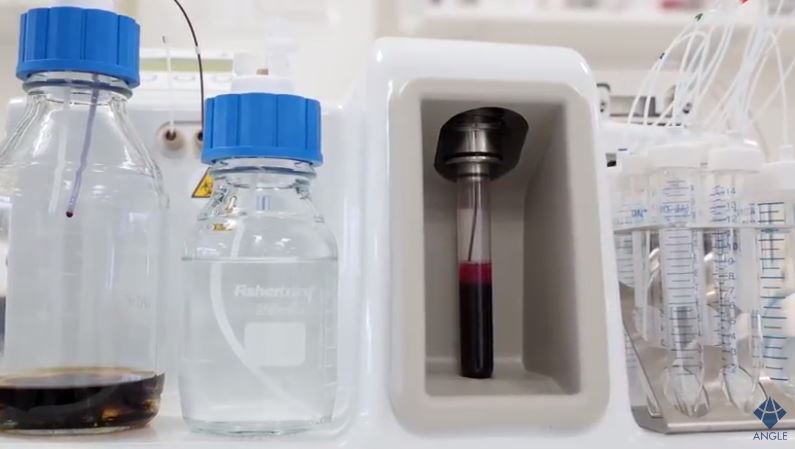Angle produces new data backing liquid biopsy in cancer

Medical devices firm Angle has produced a new analysis showing that its cancer cell detecting blood test, Parsortix, could be used in place of an invasive solid tissue biopsy in breast cancer.
Angle’s system detects cancer by testing patients’ blood samples for tumour cells circulating in a patient's bloodstream, and is conducting clinical studies to get the device approved by the FDA.
Working with the University of Southern California’s (USC) Norris Comprehensive Cancer Center, Angle has produced an analysis detailing how the system can be used to obtain comparable gene expression information via its blood tests in place of biopsy data.
USC made a direct comparison of extensive gene expression information from the biopsy of the metastatic site with that from a blood test processed with the Parsortix system.
Information from Parsortix 'did not show significantly different patterns of expression', compared to the invasive biopsy of the metastatic site.
The analysis investigated 66 clinically actionable genes in seven different signalling pathways that are currently used by doctors to help diagnose disease.
Angle hopes to have FDA-required clinical studies completed by the end of June next year.
It is aiming to become the first company to receive US approval for a medical device harvesting cancer cells from patient blood for analysis.
But there is competition – for instance, Roche bought CAPP Medical in 2015, which is developing a rival liquid biopsy system.
And, backed with $100 million from investors including Bill Gates and Jeff Bezos, Illumina has created the company GRAIL with a mission to get a circulating tumour DNA-based blood test approved by 2019.
Julie Lang, director of the USC Breast Cancer Program at USC’s Norris centre, said: “Our study showed that we are able to use a Parsortix liquid biopsy of circulating tumour cells to perform in-depth characterisation of potentially clinically-actionable treatment opportunities in metastatic breast cancer patients.
“We demonstrated that circulating tumour cells may serve as a surrogate for biopsies of macrometastases. Successful validation of our approach in future clinical studies could revolutionise clinical management of metastatic breast cancer and advance the promise of personalised cancer therapies, ultimately positively changing the outcome for patients with metastatic disease.”












